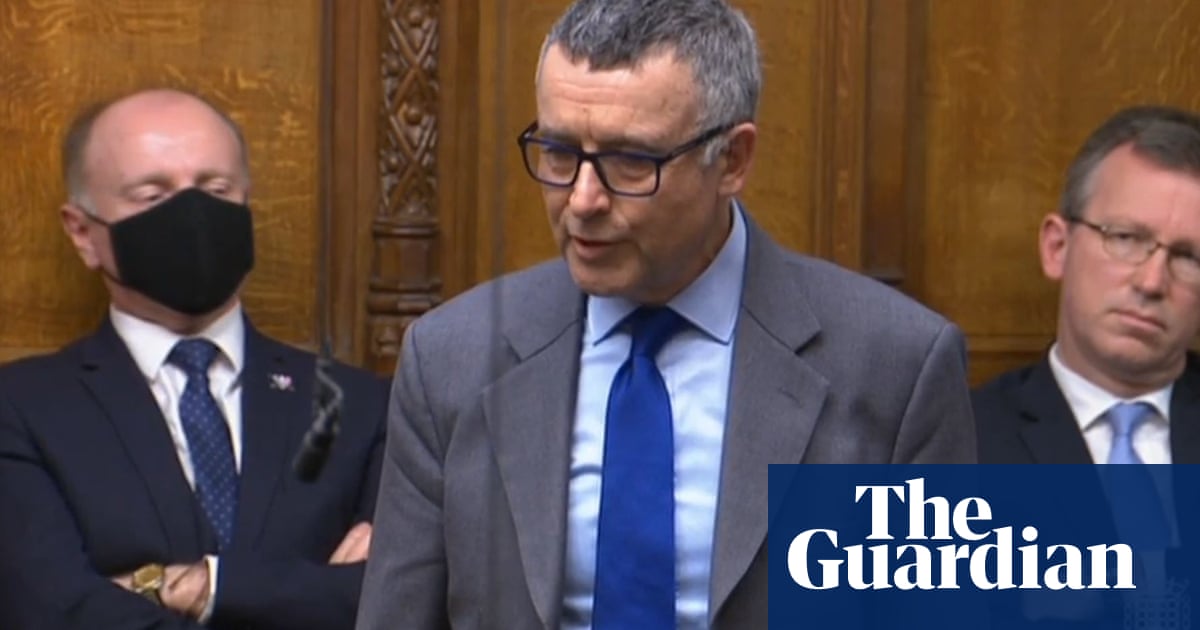
Senior Conservatives from across the party have renewed calls for Boris Johnson to implement urgent tax cuts as Downing Street played down the prospects of a shift in policy.
A string of high-profile MPs, from Steve Baker on the party’s right wing to Damian Green on its left, have backed a fresh demand from the Adam Smith Institute for the government to reduce the tax burden.
“One of the best ways to help people in a cost of living crisis is to cut the taxes they pay, whether personal taxes or the tax on goods and services,” said Green, a former cabinet minister. “I urge this path on the chancellor of the exchequer.”
Another supporter is Penny Mordaunt, a trade minister widely tipped as a potential leadership candidate if a vacancy were to arise at No 10.
“To increase revenues and growth for the nation, cut taxes,” she said. “To improve options and opportunity for individuals, cut taxes. To balance the state and generate wealth funds for future generations, cut taxes.”
The prime minister is expected to give a joint speech with Rishi Sunak, the chancellor, in the coming days to set out their plans for boosting economic growth.
The address will be part of a flurry of activity which is also expected to include a speech on housing policy and the publication of a bill to unpick parts of the Northern Ireland protocol.
But it is unclear how many new policies will be involved. A No 10 source made clear that the economy speech would not include new personal tax cuts as demanded by many backbenchers, saying: “It will not be anything fiscal.
“It’s a very difficult balance because while everyone wants to cut taxes, we do also have to be fiscally responsible,” the source added.
In the aftermath of Monday’s confidence vote, Johnson told his cabinet that they must focus on “delivery”, and should be proud of the government’s mission to level up. But rebel MPs feel their hand has been strengthened in the battle of ideas after the near-miss in the vote of no confidence.
Rumours of a reshuffle to punish suspected rebels among the junior ministerial ranks, and stamp Johnson’s authority on his divided party, continued to sweep through Westminster on Tuesday. A government source said: “I don’t think there is anything imminent on that.”
The Adam Smith Institute says that 8 June is “tax freedom day”, when the average earner has worked enough to pay off their annual tax bill. It argues that the date has moved progressively later in recent years as the tax burden has risen.
Sunak confirmed to an audience at the Onward thinktank on Tuesday that he intends to cut business taxes in his autumn budget.
“In the autumn we will be setting out a range of tax cuts and reforms to incentivise businesses to invest more, train more and innovate more,” he said.
But many senior Tories would like to see Sunak cut personal taxes, as well as lightening the load for firms.
The former trade minister David Frost, who resigned last year, told Radio 4’s The World at One: “I think that all tax rises that we brought in, and the corporation tax ones that are due to come in soon, ought to be reversed. It is not conservative to be raising taxes, and it is undermining growth and prosperity.”
Johnson mentioned tax cuts in his make-or-break speech to the backbench 1922 Committee on Monday, telling MPs: “The way out now is to drive supply side reform on conservative principles and to cut taxes and to drive investment in the UK.”
Lord Frost urged Johnson to insist on a change of course, saying: “This prime minister is always best when he trusts his instincts and does unconventional things.”
Tory MPs are privately urging No 10 to remind Johnson that he is “first lord of the Treasury” and should overrule any Treasury resistance to quick tax cuts, regardless of worry about inflation.
Baker said he would “prioritise cuts which raise the prosperity of the poor”, while another Conservative MP said the “timing was key” and Johnson would need to signal next week how taxes should be cut or face further problems from his critics.
One Conservative MP, Bob Seely, who supported Johnson in the confidence vote, said the point on tax cuts was about the “narrative” for the party, rather than specifically which taxes should be cut.
“The issue is [on tax cuts] – and I’m a big fan of David Frost – is that it is about an agenda and a narrative. We need to take people with us, saying this where we are going and what we are doing. A lack of direction is a serious thing … We need an agenda and we need to deliver the government that we said we were going to deliver.”
Another Tory MP said they wanted to see a cut in basic rate income tax but also inheritance tax by making changes to the care cost system.












